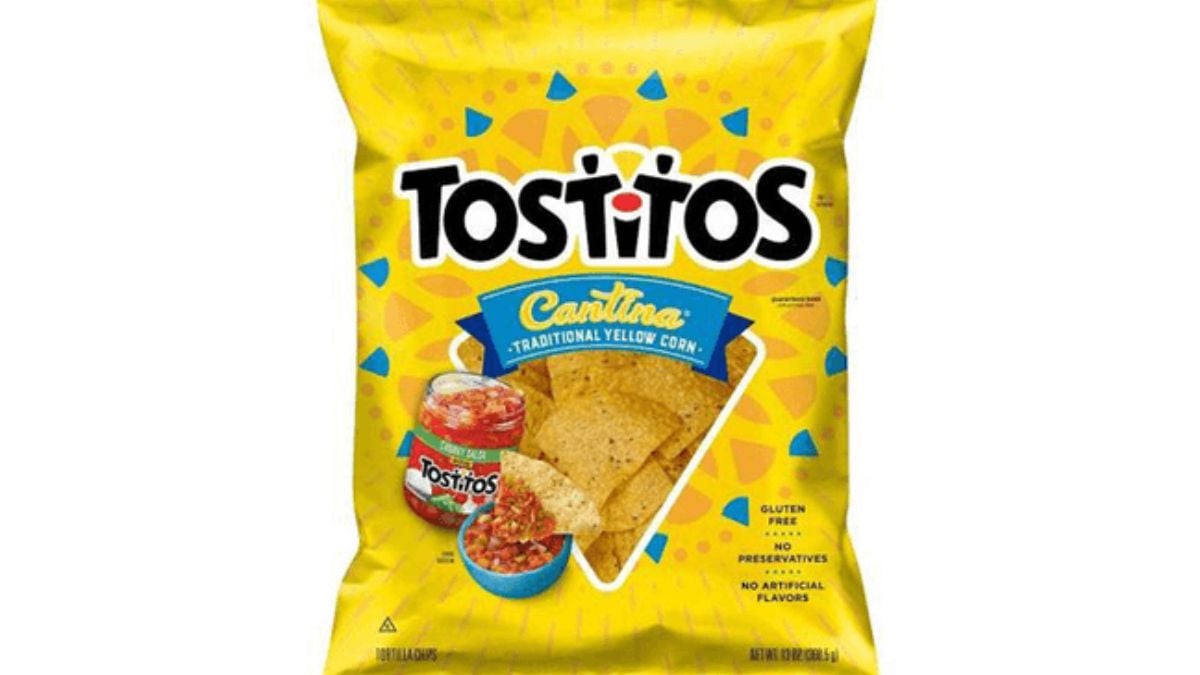
The U.S. Food and Drug Administration (FDA) has upgraded the recall of Frito-Lay Tostitos to Class I, as they represent a potential health risk, even death, due to an undeclared allergen on the packaging.
The recall began on March 26, after it was reported that approximately 1,300 bags of Frito-Lay Tostitos contained nacho cheese corn chips with undeclared milk in the packaging, which could pose a health risk to individuals allergic to this ingredient.
Which Frito-Lay Tostitos chips were recalled?
The recall concerns the 355g Tostitos Cantina chips. The recalled product has a “freshness guarantee” date of May 20, 2025, and a manufacturing code ending in any number between 30 and 55. According to the company, the recall does not affect any other Tostitos products.
ALSO READ Our Family ground coffee bags recalled; this is the reason
Where were the recalled Frito-Lay Tostitos chips sold?
The recalled Tostitos bags were sold in retail stores and online in 13 states:
- Alabama
- Florida
- Georgia
- Illinois
- Virginia
- West Virginia
- Indiana
- Kentucky
- Mississippi
- North Carolina
- Ohio
- South Carolina
- Tennessee
What should I do if I purchased the recalled Tostitos chips?
According to Frito-Lay, consumers who purchased the affected product and have a milk allergy or any concerns can contact the customer service line at 800-352-4477 during business hours, from 10 AM to 5:30 PM (Eastern Time).
What is a Class I recall?
The FDA classifies product recalls into three classes based on the potential danger they pose to consumers. The highest is Class I, which occurs when there is a reasonable probability that the use of the violative product or exposure to it will cause serious adverse health consequences or death.
In this case, the procedure is as follows:
- The company issuing the recall notifies its customers and urges them to inform the intended recipients of the product.
- The notification typically includes the name of the recalled product, batch or serial numbers, the reason for the recall, a brief explanation of the associated risk, and instructions on how to correct, avoid, or minimize the issue. A phone number for further questions about the recall is also provided.
- The company issues a press release to inform the public, if applicable, to minimize public health consequences.
The other two recall classifications are:
- Class II recall: A situation where the use of the violative product or exposure to it may cause temporary or clinically reversible health consequences, or where there is a remote probability of causing serious adverse health consequences.
- Class III recall: A situation where the use of the violative product or exposure to it is not likely to cause any adverse health consequences.
ALSO READ Will there be Pulse season 2 on Netflix? Here’s what we know
Symptoms of a milk allergy
According to the Mayo Clinic, symptoms of a milk allergy vary by person, but there are some common signs that appear shortly after consuming dairy products. Symptoms may include:
- Hives
- Wheezing
- Itching or tingling around the lips or mouth
- Swelling of the lips, tongue, or throat
- Coughing or difficulty breathing
- Vomiting
- Loose stools or diarrhea, which may contain blood
- Abdominal cramps
- Runny nose
- Watery eyes
- Colic (in infants)
How dangerous is a milk allergy?
In addition to the symptoms mentioned above, a milk allergy can also trigger anaphylaxis, a potentially life-threatening reaction that causes the airways to narrow and may make breathing difficult.








